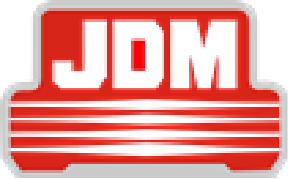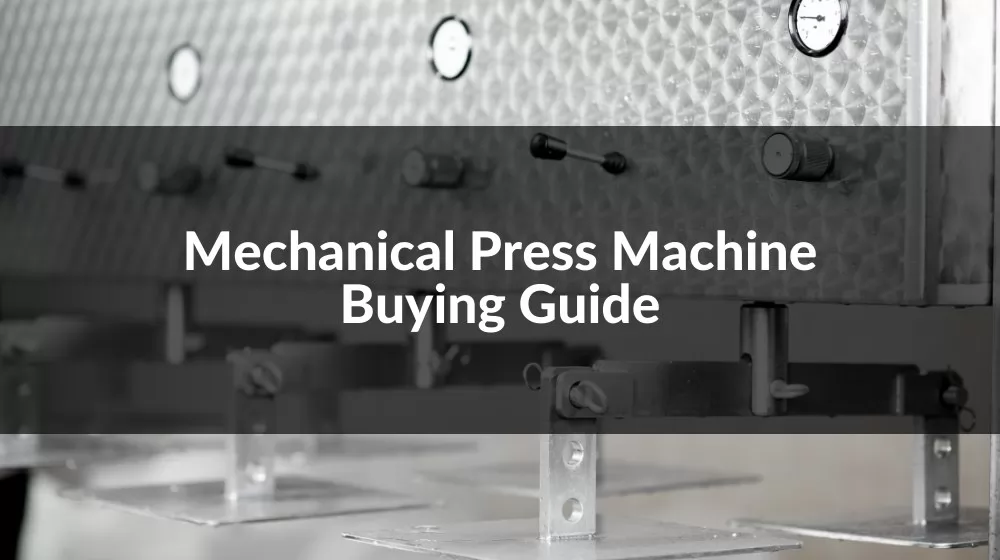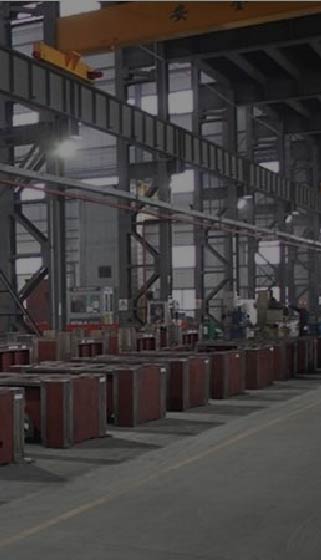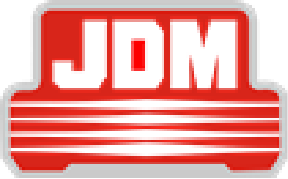








Industrial mechanical presses are used in manufacturing plants to shape metal materials by applying pressure, or to assemble products.
Read our guide to learn about the components of mechanical presses, how they work, and which one is best for your business.
There are two main types of presses available today; hydraulic and mechanical. Each has advantages and disadvantages and it is important to understand the differences.
Both types of presses are used to process materials, but they do so in different ways. Hydraulic presses use water to move pumps and cylinders. Mechanical presses use mechanical parts to do their job.
The different presses have their own advantages and disadvantages. Mechanical presses are faster, cheaper, and more energy efficient. Hydraulic presses are more flexible, and programmable movements improve their accuracy.
Mechanical presses may also have hydraulic components in addition to their mechanical components. These are just to increase the efficiency and power of the machine.
Mechanical presses offer a variety of uses and advantages over hydraulic presses. Some companies may benefit more from one or the other, so it's important to understand the differences.
Mechanical presses offer high production speeds and allow for mass production. On mechanical presses, only a few standard parameters can be set, so the machine is not as flexible or versatile as a hydraulic press. Mechanical presses usually require an operator to manage the operations associated with striking. Therefore, it is necessary to equip such machines with suitable safety devices, such as foot switches, gratings, etc.
Mechanical presses are usually high precision machines and can guarantee repeated strikes over time. On the other hand, they operate only on a given course. Therefore, it is important to check that the opening distance is appropriate for the size of the part before and after manufacture.
Mechanical presses make it easier and more efficient to form metal materials. Knowing the different types and how they work will allow you to choose the one that best suits your business.
Mechanical presses are machines that use pressure to make or change metal materials to form metal. There are several types, and it is important to understand the differences in order to choose the type that is best for your business.
It is important to classify presses according to their purpose and to choose the one that corresponds to your business. It can be a bending machine, rolling, forging, power, punching, stamping or steel press.
A bending machine holds metal between two plates, which are then bent and shaped according to the manufacturer's needs. Rolling presses place metal between two rolls that rotate to shape the material. Forging presses slowly apply pressure to hot material for larger products or cold material for smaller products.
Power presses have a rotating flywheel that provides the necessary energy. Their components include beds, support plates, plungers and knockers that eject the finished product. They can quickly perform functions such as bending, deep drawing, crimping and piercing.
Punch presses apply pressure to change the shape or size of a material. They are named after punches, which are components attached to a reciprocating plunger to apply pressure. The die holds the material in place so that it does not move during the process.
Presses repeatedly stamp materials to change them. They create stamped parts by changing metal sheets or metal coils. They can use a variety of materials, such as steel, brass and aluminum.
Steel presses use only steel, which is a difficult material to work with.
It is important to understand the different types of mechanical presses before deciding which one to buy to conduct your business. They have unique components, can use different materials and vary in cost. It is important to choose the one that best fits your business needs.
The calculation formula is as follows.
p - the deformation force required for die forging (KN).
F - forging together with the projected area of the flying edge (cm 2)
(64 to 73) - the coefficient of complex forgings taken 73, simple parts taken 64.
q - is a deformation coefficient, according to the stroke and deformation work in spiral press die forging can be divided into.
forgings need large deformation stroke, deformation and deformation work for die forging, q = 0.9 ~ 1.1.
when the forgings need smaller deformation stroke and deformation work for die forging q=1.3.
When the forging requires only a small deformation stroke, but needs a large deformation force for fine pressing q=1.6.
P=(17.5~28)K-F total (KN) where F total - the total projected area of the forging together with the flying edge (㎝ 2)
K - steel grade coefficient, refer to the third unit of equipment tonnage calculation section; ( (17.5-28) - coefficient 28 is used for difficult deformation (such as extrusion deformation, with flying edge deformation, etc.) and high production rate, and vice versa 17.5. The above formula applies to the calculation of tonnage of equipment required for hammering 2-3 times.
If you need to hammer forming at once should be doubled according to the calculation.
When researching the best mechanical press for your plant, keep these six tips in mind.
Before you start browsing and choosing a mechanical press, write a general list of jobs you do regularly. Whether blanking, stamping, stamping, bending, deep drawing, metal forming or molding, know exactly how you will use your new press.
This will tell you which processes you need the mechanical press to perform.
Modern mechanical presses have a wide range of tonnages and many functions. Many make it easy to control pressure and ram speed. These presses are highly customizable and can easily handle a variety of jobs. Use a full-featured press that can handle the many types of jobs on your master list of processes that you often need to complete.
The latest mechanical presses can handle more complex jobs faster and more efficiently than previous presses. They come with a programmable electronic control panel. This means you can customize your press features to individual jobs and their specifications. You get consistently high levels of superior output at a faster rate.
Most machine shops need to deliver high-end results for their customers. That's why it's critical to choose a machine press that provides precision and accuracy for every job. Choose a model with an adjustable power function and lateral movement slide control. This can prevent problems with unbalanced loads.
Choose technology that allows your operators to take full advantage of the press, using its design and production techniques creatively. If you need low tonnage, use a larger press. Smaller bed presses can handle high tonnage and high quality finishes, using side action, under action and multi-action.
Modern mechanical presses save space and minimize maintenance costs. They take up less than half the space of mechanical presses. This means you can use your store space efficiently. Make sure that spare parts for the press you are researching are easy to find, thus limiting potential downtime.
There are quite a few things you need to know when choosing the most suitable mechanical press for your business. Of course, if you are looking for the right press for your business, JDM can help you determine the right mechanical press to achieve your goals. With decades of experience and leading-edge technology, we can meet your specific needs.






